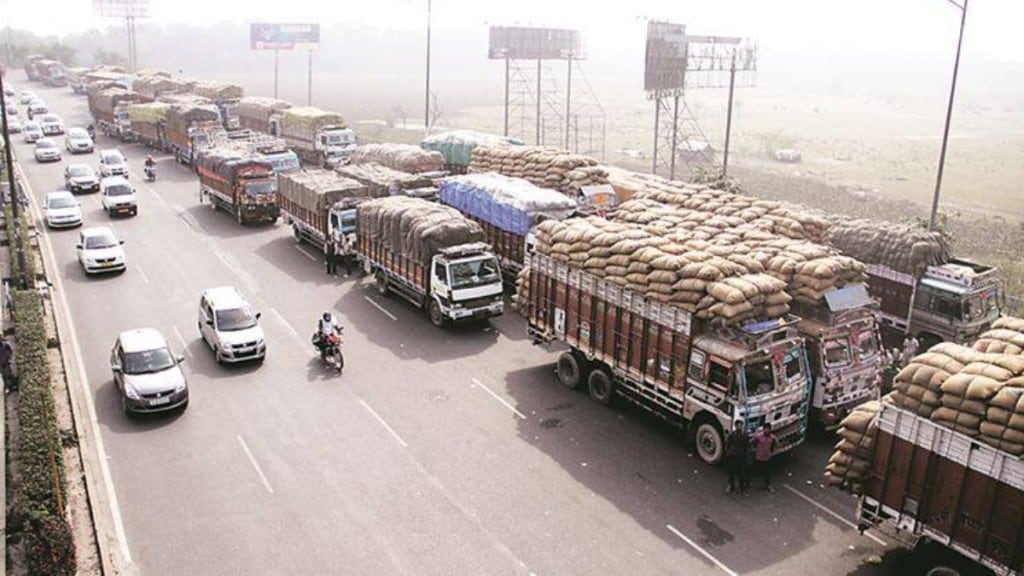– By Pirojshaw (Phil) Sarkari
A highly fragmented market is an antithesis of efficiency and resource optimisation. Because a fragmented market is controlled by multiple intermediaries. They operate in silos and set norms that are often old-fashioned and self-serving in nature. These tiny power centres pull the industry in different directions and the growth becomes either slow-paced or stagnant.
The fragmented trucking industry is a prime example of how growth meanders in the maze. It has a cascading effect on the logistics operations in terms of higher overheads and operational efficiency. Market fragmentation, as a matter of fact, runs deep in the trucking industry. According to various estimates, more than 70 per cent of the truck owners own a fleet of less than five trucks. Now, take a look at the role the trucking market plays in the logistics ecosystem. According to a Niti Aayog report, Transforming Trucking in India published in 2022, trucks carry the lion’s share of India’s freight, meeting 70 per cent of domestic freight transportation demand. Trucks carry approximately 4.6 billion tonne of freight a year. Given the demand growth fuelled by e-commerce boom and the emergence of new consumption centres in the tier-2 and tier-3 cities, the Niti Aayog report says that the road freight movement is projected to grow to 9.6 trillion tonne-km by 2050. Therefore, it’s evident that the small truck fleet owners will continue to play a critical role in meeting the logistics demand.
Having said that, an unorganised trucking industry with below-par asset utilisation and mediocre average running performance poses a tough challenge for the logistics companies when it comes to capturing the emerging growth opportunities while achieving superior cost efficiency. In India, trucks usually travel almost 300 km a day whereas the global average hovers in the range of 500-800 km, as per the Niti Aayog report. Add to those issues like empty mile or dead head and higher operational cost in particular due to the presence of intermediaries.
The key factor which is de-accelerating the evolution of an organised and efficient trucking ecosystem is the spot-market-like functioning of the trucking industry. It’s a typical mandi in which truck fleet owners get transportation orders through intermediaries i.e. brokers. Due to the unorganised way of functioning, the billable days for the trucks still remain less than 16 in a month. Load carrying capacity also remains under-utilised.
Therefore, the need of the hour is to build an enabling ecosystem in which web-based fleet aggregating models can thrive. Such a model will drive consolidation, build ease of use, cut down intermediaries and facilitate fleet optimisation. This way, express logistics companies can build economies of scale, create strong growth trajectory and build long-term profitability.
Truck aggregation platforms make effective use of real-time data to optimize freight costs. They ensure that the origin, destination, and vehicle type are in sync. By doing so, they minimize dead hauls and reduce the time spent waiting for loading or unloading. By facilitating efficient capacity deployment and acting as a demand and supply discovery platform for truckers and shippers, truck aggregation platforms pave the way for the logistics companies to build sustainable business models.
The truck aggregator model has already delivered results in terms of cost-efficiency, load optimisation, track and traceability, etc. in the developed markets. It’s about time start-up innovators strengthen their focus on building futuristic truck aggregators models. In a fragmented market, consolidation is the only way to achieve superior visibility towards available resources and such platforms are great enablers for that. Alternatively, Indian truck fleet owners should demonstrate willingness to adopt such models. Because consolidation helps both the truck owners and logistics companies when it comes to boosting cost efficiency and profitability.
(Pirojshaw (Phil) Sarkari is the MD and CEO at Gati Express and Supply Chain Private Ltd.)
(Disclaimer: Views expressed are personal and do not reflect the official position or policy of Financial Express Online. Reproducing this content without permission is prohibited.)

